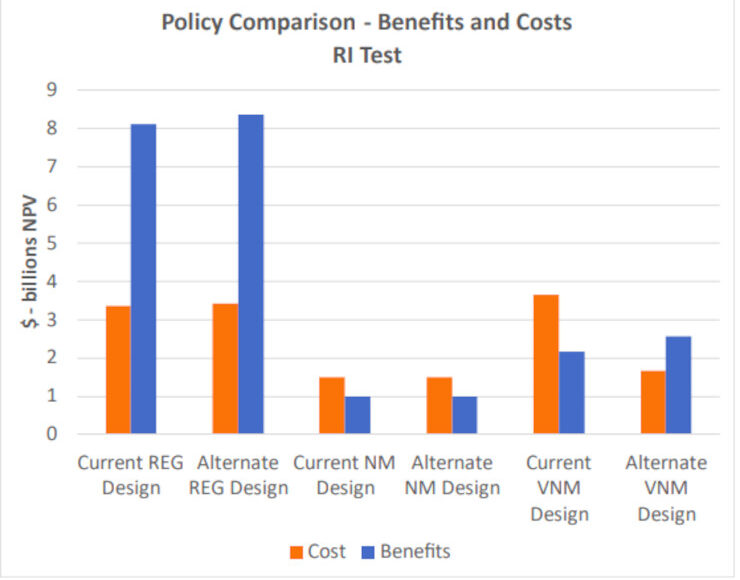House and Senate Bills Miss Their Mark In Protecting Forest From Solar Development
Rhode Island House bill H 5853 and the RI Senate companion bill S 684 may be trying to protect Rhode Island’s forest environment, but they are missing their target.
The banner image in this post shows a cost-benefit analysis that was done for Rhode Island’s renewable energy siting programs. The study was done for the Rhode Island Office of Energy Resources (OER) by a third-party consultant ensuring that the results are objective and have been done with stakeholder input.
The banner image indicates that the Renewable Energy Growth (REG) program is by far the most cost-effective program for funding solar development. The costs for net metering (NM) and virtual net metering (VNM) are significantly greater than the benefits. VNM is the program that is encouraging the greatest amount of forest loss in Rhode Island.
These results are not surprising and indicate that the expansion of net metering for commercial and industrial customers per H 5853 would not be a good deal for RI ratepayers and a very bad deal for our forests.
This analysis supports the concerns with H 5853 and the senate companion S 684 that were expressed by RI Energy and the Public Utilities Commission (PUC) at the respective legislative hearings. Grow Smart also testified that no legislative changes should be made until the results of this OER analysis were available.
The legislation allows the expansion of net metering as part of a deal to allegedly remove the solar incentives from core forests, but this is a bad deal for RI. The legislation defines “Core forest” as unfragmented forest blocks totaling at least two hundred fifty (250) acres or greater, unbroken by development, and at least 75 feet from any mapped roads. Although Charlestown has many areas of unfragmented forest, much of it would not meet this definition, leaving the town open to wide-scale forest clearing.
The towns where core forest that meets this definition is located have already used their zoning authority to prevent future utility-scale solar. This bill is all about making more money for solar developers. It will not stop forest loss in RI and will increase the costs of electric bills.
